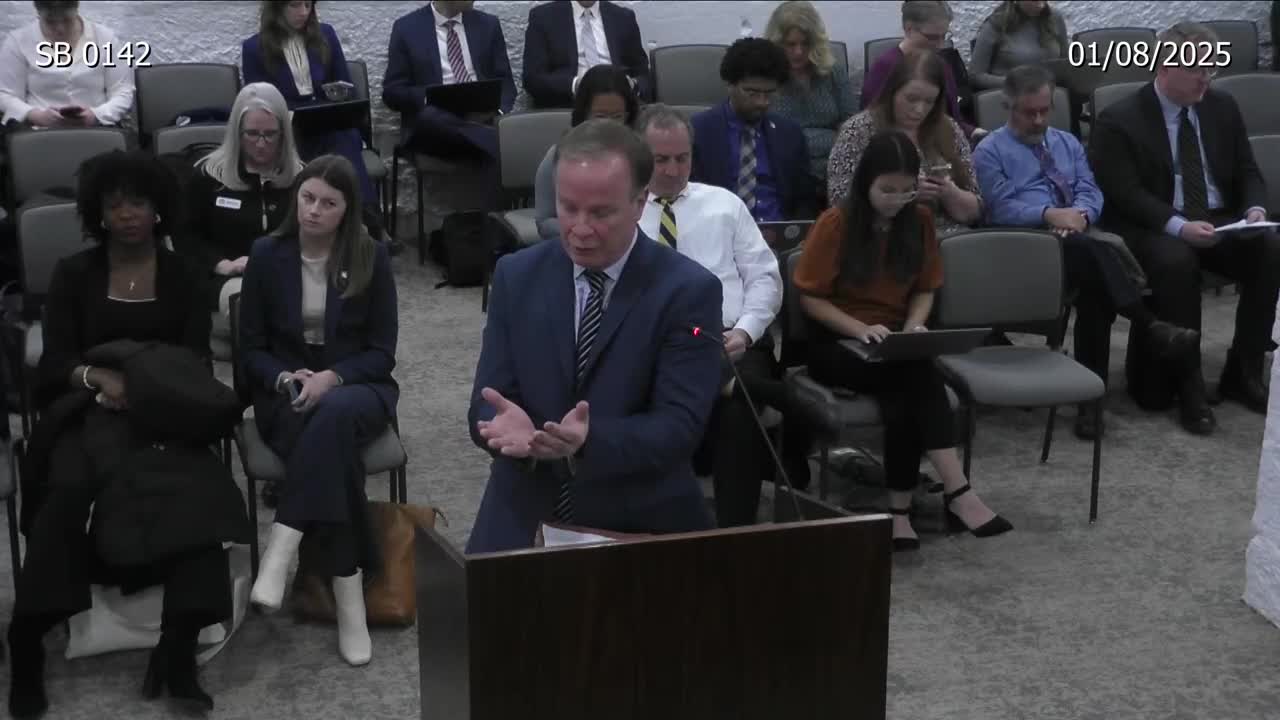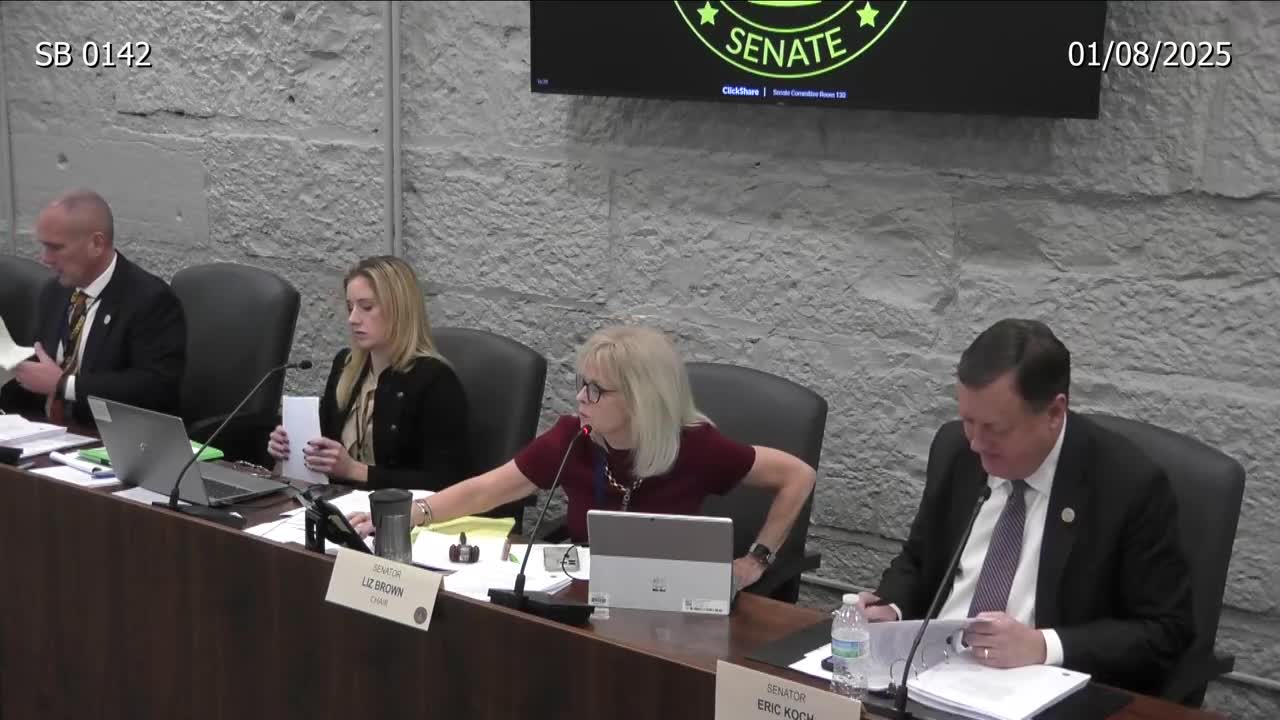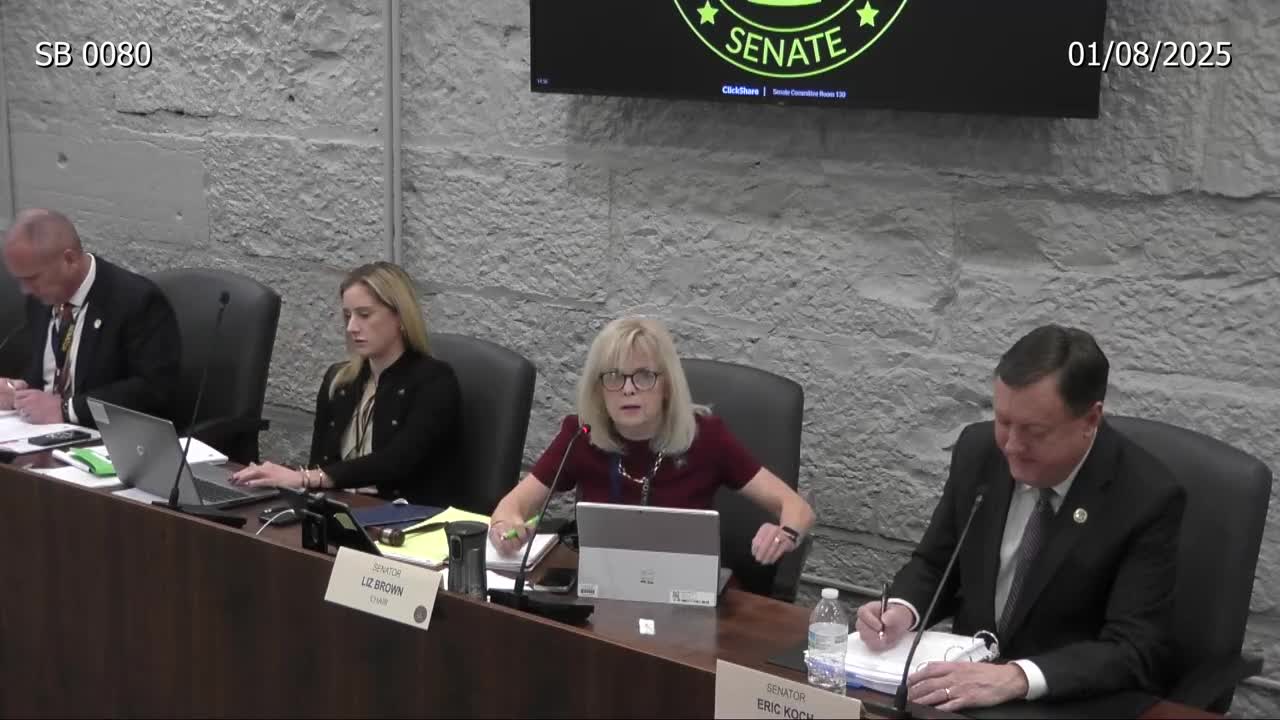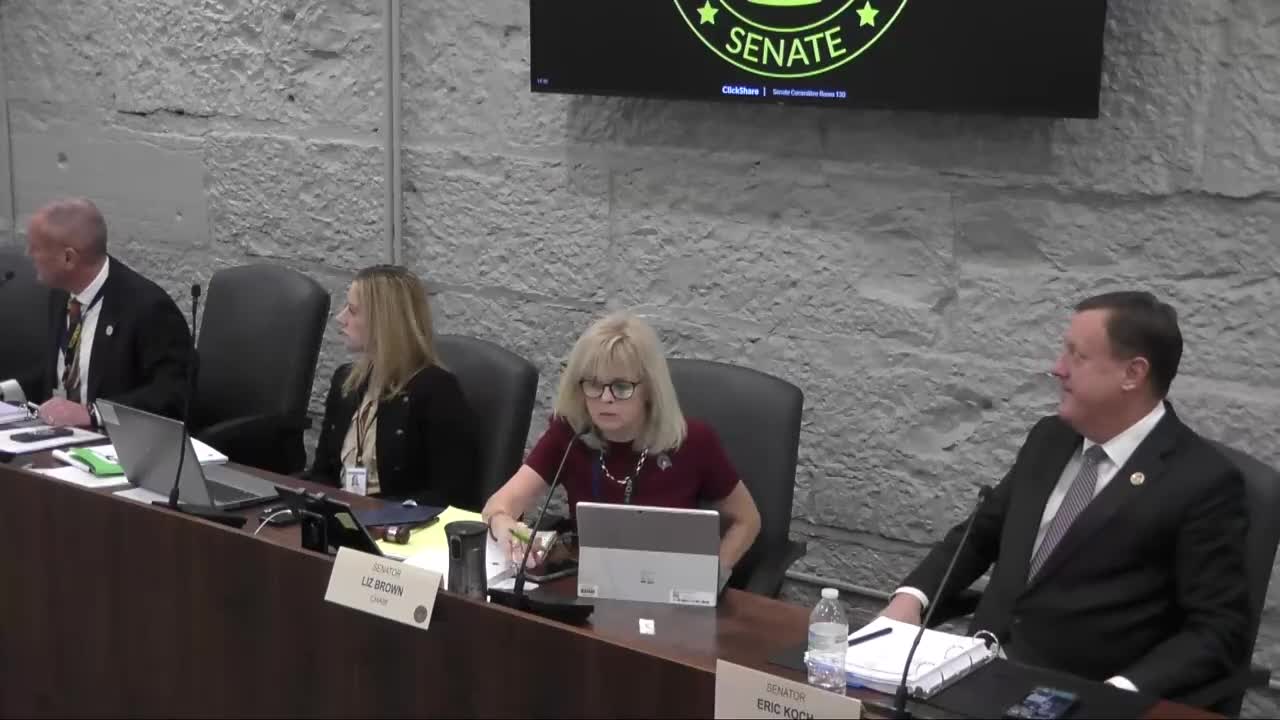Article not found
This article is no longer available. But don't worry—we've gathered other articles that discuss the same topic.

Senate debate begins on social‑media age limits for minors; sponsors to refine draft

Committee hears wide support for automatic eviction‑sealing changes; technical issues flagged

Committee hears hours of testimony on parental-rights bill; chair to hold for amendments

